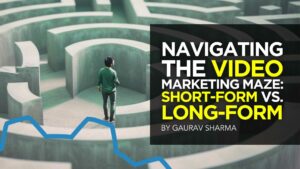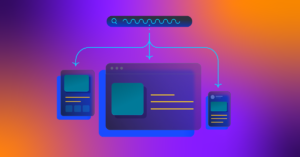
Discord is an underrated gem of a community management and communications platform.
This VoIP-based chat platform enables users to communicate via voice, screen share, and text.
As a gamer, I am the biggest Discord fan and use it more than I use Slack, Skype, Teams, or Hangouts.
And from a marketing standpoint, I’m elated it’s becoming mainstream and more brands are incorporating it into their communication plans.
Not convinced? Let’s take a look at the following:
- What is Discord?
- Who uses it?
- Strategic points of differentiation (or what makes Discord awesome).
- Where Discord fits in your digital marketing strategy.
- Using Discord for advertising.
What Is Discord?
Discord is a community-powered voice-over IP (VoIP) application on iOS, Mac, Android, and Windows.
Users can create their own public or private Discord server. Those private servers have unique invite links that expire in seven days. Servers can have public and private channels (denoted by the # sign) and threads within said channels.
As with several other communication platforms, users can send out alerts with @here or @everyone.
Where Discord shines (and we’ll get into this in greater detail in the next section) is in its user roles, which can grant users access to certain channels, as well as alert only people with that role.
Discord allows users to upload stickers, emojis, and gifs, and to use those the community has already shared.
Who Uses Discord?
As of February 2022, Discord says it has:
- 150 million monthly active users
- 19 million active servers per week
- 4 billion server conversation minutes daily
Discord CEO Jason Citron told NPR in 2021:
“We surveyed 20,000 of our users and asked them questions like, ‘What is the biggest misconception that people have about Discord?’
The resounding answer was that the biggest misconception is that Discord is only used for gaming.”
Citron and co-founder Stan Vishnevskiy created Discord in 2015 to encourage a feeling of togetherness among gamers and a better way for them to communicate.
Today, Discord says it is “used by everyone from local hiking clubs, to art communities, to study groups. Discord has millions of people creating places for their friends and communities, talking for upwards of 4 hours per day on the platform.”
How Much Does Discord Cost?
Users can choose to use the free version or one of the Nitro upgrades.
The plans include the following:
Free
- 30 FPS screen sharing (low video quality).
- One server boost per server (paid add-on allowing you to unlock additional emoji slots and perks such as animated server icons).
- Access to video chat, private servers, public servers, and voice chat.
- Access to Discord Bots for your servers (AI that can monitor new members in your server and send automated messages).
- Image shares and file uploads with limited bandwidth
- Can belong to up to 100 servers.
Nitro Classic ($4.99 Per Month)
- More customization options for profiles (animated avatar, custom tag, and Nitro Badge).
- 30% off server boosts ($4.99 per month).
- Custom/animated emoji can be used outside their original server.
- 60 FPS screen sharing.
Nitro ($9.99 Per Month)
- Multiple profiles, allowing you to keep personal and professional identities separate.
- Customizable backgrounds for videos.
- Unique stickers and emojis.
- Two free server boosts ($119.76 per year value).
- Uploads can be up to 100 MB.
- Better quality streaming and longer posts (4000 character count).
- Be part of more communities (up to 200).
Strategic Points Of Differentiation (Or What Makes Discord Awesome)
User roles are one of the biggest reasons I love Discord.
These roles allow you to alert only folks who have that role on important messages, as well as determine access to channels.
One of the biggest reasons for friction in Slack or Skype is the overuse of channel or server-wide pings.
By setting up roles in Discord, you can empower brand advocates, moderators, or any other specialized member, while not bombarding everyone else with alerts.
In this case, my user profile denotes that I am an officer in the guild I belong to, as well as a clan lead (sub-group).
I also have the “Judge Chat Pass” which grants me access to the secret channel for events where we hold contests.
Discord video and audio settings are pretty fantastic compared to other communication platforms.
While there are some settings that can only be used by server admins, users can adjust:
- Individual user volume.
- Moving users to different voice channels.
- Mute (either to help a person who might have left a mic on or across the server).
- Invite users to other servers you have access to.
- Set roles and notes.
- Deafen the user to the server (this means they can’t hear content).
Animated backgrounds, gifs, and profile pictures are another big benefit.
While they’re mostly a paid feature (you need to have server boosts or be a Nitro subscriber), these add a lot more flexibility for users to define their online personality.
Where Discord Fits In Your Digital Marketing
Discord’s community-oriented ethos is the key to unlocking its full potential.
Your community – through streams, events, crowd-sourced content, and other collaboration opportunities – can give you product feedback in real-time, provide insights into ideal messaging, and help create new brand evangelists.
While there are many marketing applications for Discord, these represent some of the easiest ways to reach your target audience with minimal infrastructure effort:
Customer Community Groups
Whether you’re launching a new product or keeping a finger on the pulse of your customers/prospects’ feelings towards your service, Discord’s channels, threads, and roles provide great mechanisms to manage great customer marketing in a branded hub.
Unlike Facebook groups, LinkedIn communities, or Slack/Skype offerings, Discord allows for lots of flexibility and organization while remaining inside a branded experience.
Brands can identify highly engaged prospects/customers among Discord users and tag them for VIP events such as product feedback, discounts, etc.
A big reason brands may want to pivot to this is the decrease in reporting for email marketing, as well as the fluctuation in social network tagging.
Discord allows brands to create bespoke experiences with real-time pings, which is a big step up from Facebook or LinkedIn. And you can do this while side-stepping the reporting issues that can come from relying on open rates.
Building off of Twitter Spaces, Discord Events is great because it allows users to collaborate and share without being restricted on the device, as users can take the stage and share without needing to be on a mobile device.
Finally, the bots and integrations are first class. They allow for first-party data tracking along with lots of convenience features such as helping people standardize time zones, moderate content, and other automation.
Events And Live Streams
Discord’s event feature is a goldmine for livestreaming events.
Between the pop-out screen-share, user audio settings, and ability to pull folks into a new server or move channels on the fly, Discord outshines many webinar platforms.
While the resolution won’t be perfect unless the server is boosted to the third level (or you’re a full Nitro user), the amount of control at the moderator’s hands is far greater than virtual event tech.
Channels can serve as sponsor hubs and networking areas, and attendees can each get roles associated with their passes.
Livestreams can be baked into events or day-to-day communications.
Can You Advertise on Discord?
Discord does not currently offer a native advertising platform such as Facebook or Twitter.
However, there are already all kinds of servers marketing themselves as Discord Growth Experts and advertising channels for your server.
Takeaway
Discord is a powerful social community tool and a no-brainer to play within your marketing efforts.
Not every campaign or brand will need the paid version as you get most functionality on the free version.
Put Discord on your list to test out and enjoy the amount of control you’ll have in community management. See where it may fit into your own marketing strategy.
More resources:
Featured Image: Urbanscape/Shutterstock







